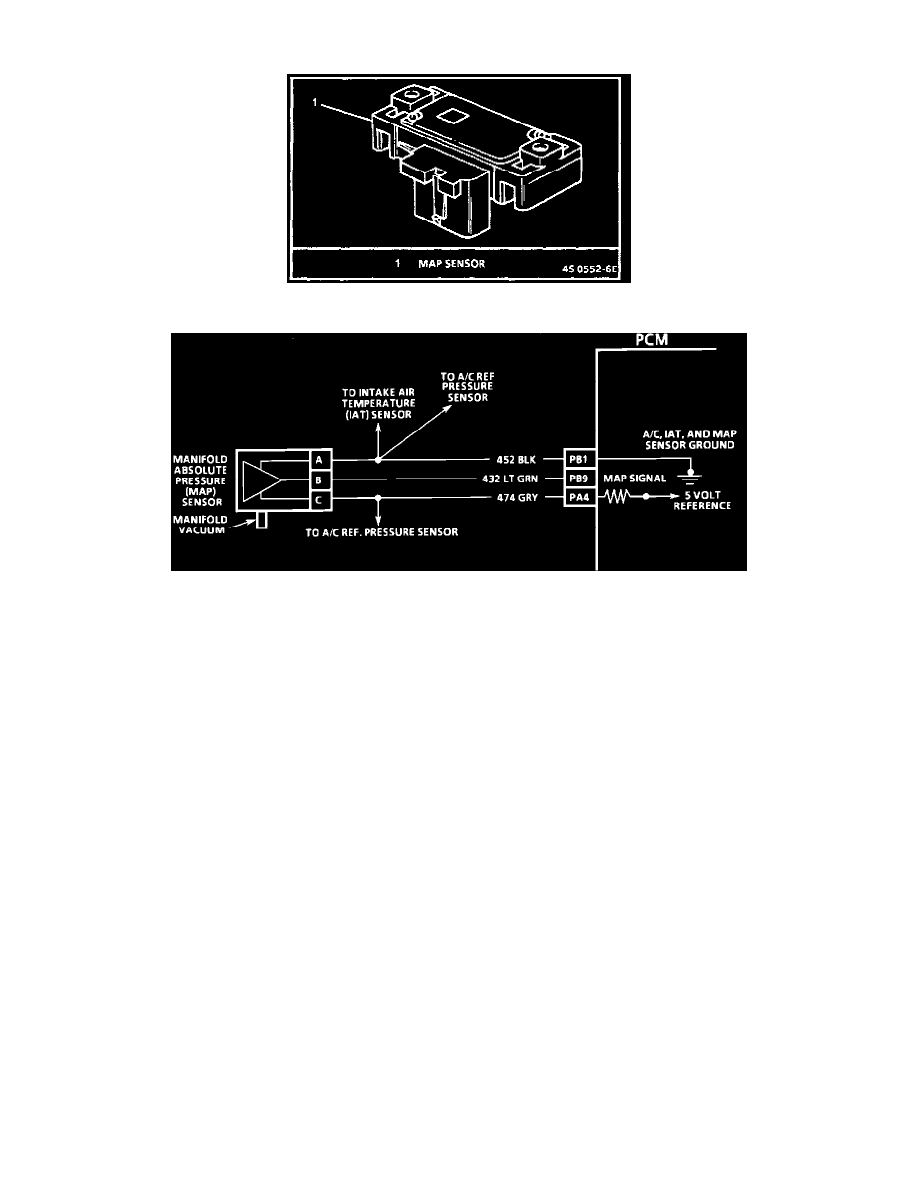Century L4-2.2L VIN 4 (1994)

Manifold Pressure/Vacuum Sensor: Description and Operation
MAP Sensor
Manifold Absolute Pressure (MAP) Sensor Circuit
PURPOSE:
The Manifold Absolute Pressure (MAP) sensor is a pressure sensitive variable resistor. It measures the changes in the intake manifold pressure
which result from engine load and speed changes, and converts this to a voltage output. The computer uses this voltage output to control fuel
delivery and ignition timing.
The MAP sensor is also used to measure barometric pressure at start up and under certain conditions, which allows the PCM to automatically
adjust for different altitudes.
OPERATION:
The PCM supplies 5 volts to the MAP sensor and monitors the voltage on a signal line to determine the manifold pressure. The sensor provides a
path to ground through its variable resistor.
A closed throttle on engine coastdown will produce a relatively low MAP output, while a wide open throttle will produce a high output. Manifold
Absolute Pressure (MAP) is the opposite of what is measured on a vacuum gauge. When manifold pressure is high, vacuum is low. The MAP
sensor is also used to measure barometric pressure under certain conditions, which allows the PCM to automatically adjust for different altitudes.
A failure in the MAP sensor circuit should set Diagnostic Trouble Codes (DTC) 33 or 34.
